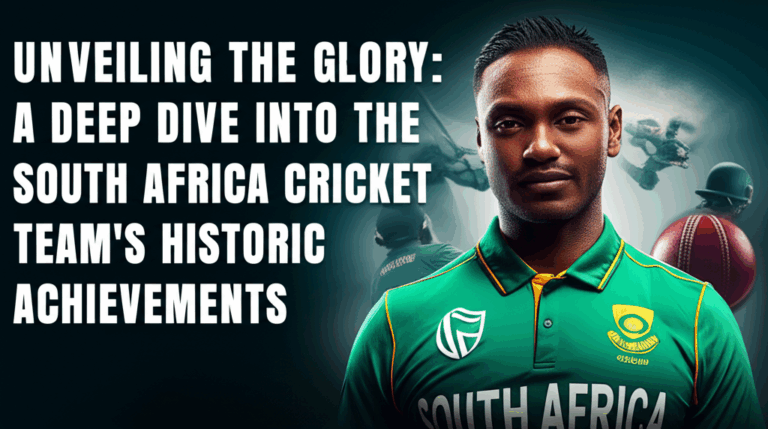
When you think of the FIFA World Cup, images of iconic matches, breathtaking goals, and the jubilation of lifting the trophy come to mind. But behind every victorious team stands a captain, a leader who not only rallies their teammates but also embodies the spirit and ambition of the nation they represent. In this article, we will dive deep into the ultimate list of World Cup-winning captains—those legends who have led their teams to glory through grit, determination, and strategic brilliance.
As we explore this rich history, you’ll gain insights into the traits that make these captains exceptional, the defining moments of their careers, and the legacy they’ve left for future generations. Whether you’re a casual fan or a die-hard football enthusiast, you’ll find value in understanding what it takes to lead a team on the world’s biggest stage. By the end of this article, you’ll not only know the names of these legendary captains but also appreciate the immense pressure and responsibility that comes with the role.
Here’s what you can expect to learn:
- The defining characteristics of successful World Cup captains.
- Key moments that shaped their careers.
- How leadership styles impact team dynamics and performance.
- Insights into the cultural significance of captains in their respective nations.
Understanding the Role of a Captain
The captaincy in football is not just about wearing an armband; it’s about leadership, vision, and the ability to inspire. A captain is the bridge between the coach and the players, often tasked with making critical decisions on the field. They must possess a strong understanding of the game, exceptional communication skills, and the ability to remain calm under pressure.
Throughout World Cup history, captains have been pivotal in shaping the outcomes of matches. They motivate their teammates, strategize against opponents, and often serve as the emotional backbone of the squad. The weight of expectation is immense, and the pressure can be overwhelming, making the role of a captain one of the most challenging in sports.
Key Components of Leadership in World Cup Captains
Successful World Cup captains share several key traits that contribute to their effectiveness:
- Visionary Thinking: Great captains often have a clear vision of how they want to lead their team. They can foresee potential challenges and strategize accordingly.
- Emotional Intelligence: The best captains understand their teammates deeply, recognizing when someone needs encouragement or when to push them harder.
- Decisiveness: Captains must make split-second decisions during matches that can alter the course of the game, demonstrating confidence and clarity.
- Resilience: The ability to bounce back from setbacks and inspire others to do the same is crucial, especially in high-stakes environments like the World Cup.
Examples of Legendary Captains
Let’s take a closer look at some of the most legendary captains in World Cup history and what set them apart:
Cafu (Brazil)
Cafu is the only player to have appeared in three consecutive World Cup finals (1994, 1998, and 2002) and led Brazil to victory in 2002. Known for his exceptional stamina and ability to navigate the right flank, Cafu’s leadership style was characterized by a blend of tactical awareness and motivational prowess. He was a player who inspired confidence in his teammates, and his performances on the field reflected his dedication.
Franz Beckenbauer (Germany)
Often referred to as “Der Kaiser,” Beckenbauer captained West Germany to victory in 1974 and later managed them to success in 1990. His tactical ingenuity and calm demeanor on the pitch made him a natural leader. Beckenbauer was not just a defensive stalwart; he revolutionized the sweeper role, demonstrating that captains could also be innovative thinkers.
Diego Maradona (Argentina)
Maradona’s leadership transcended mere statistics. Captaining Argentina during the 1986 World Cup, he led his team to victory with extraordinary skill and flair. His infamous “Hand of God” goal and the “Goal of the Century” against England remain etched in World Cup folklore. Maradona’s charisma and passion were infectious, and he often carried the team on his shoulders, proving that true leadership is about more than just tactics—it’s about heart.
Benefits and Importance of Strong Leadership
Effective leadership in sports, particularly in high-pressure environments like the World Cup, can significantly influence a team’s performance. Here are some benefits of having a strong captain:
- Enhanced Team Cohesion: A captain who fosters unity among teammates can create a more collaborative and positive atmosphere, which is essential for success.
- Improved Performance: Players are more likely to give their best effort when they feel inspired and supported by their captain.
- Strategic Advantage: A captain’s understanding of the game can lead to better decision-making during critical moments, providing a competitive edge.
- Increased Resilience: Strong leadership helps teams to recover from setbacks and maintain focus on their objectives throughout the tournament.
Practical Applications of Leadership Lessons
The lessons learned from World Cup-winning captains extend beyond the football pitch. Here are some practical applications of their leadership styles:
In Sports Teams
Coaches and aspiring captains can emulate the leadership styles of successful World Cup captains. Developing traits like emotional intelligence and resilience can enhance team dynamics and improve performance. For example, fostering open communication and encouraging team discussions can help build trust and camaraderie.
In Business Environments
The principles of leadership applicable in sports can be translated into the business world. Just like a captain leads their team, a manager can inspire employees by cultivating a shared vision and encouraging collaboration. Emotional intelligence, decisiveness, and resilience are equally valuable in navigating corporate challenges and achieving goals.
In Everyday Life
Finally, the lessons from these captains can be applied in everyday situations. Whether you’re leading a group project at school or organizing a community event, the ability to communicate effectively, inspire others, and maintain composure under pressure will serve you well. Remember, everyone has the potential to be a leader in their own right.
Frequently Asked Questions
What qualities make a great World Cup captain?
A great World Cup captain possesses qualities such as strong communication skills, tactical awareness, emotional intelligence, and resilience. They should be able to motivate their teammates, make quick decisions under pressure, and maintain a clear vision for the team’s objectives.
Who are some of the most successful World Cup-winning captains?
Some of the most successful World Cup-winning captains include Cafu (Brazil, 2002), Franz Beckenbauer (Germany, 1974), Diego Maradona (Argentina, 1986), and Lothar Matthäus (Germany, 1990). Each of these captains brought unique skills and leadership styles that contributed to their team’s success.
How does a captain influence the outcome of a World Cup match?
A captain influences the outcome of a World Cup match through their leadership on the field. They make critical tactical decisions, motivate players, and can alter the team’s strategy based on the game’s flow. Their ability to remain calm under pressure can also help stabilize a team during crucial moments.
What role does a captain play in a team’s preparation for the World Cup?
A captain plays a vital role in team preparation by acting as a liaison between the coach and players, ensuring that everyone understands the game plan and objectives. They also help build team morale and unity, which are essential for success in high-pressure tournament situations.
Can the lessons from World Cup captains be applied outside of sports?
Absolutely! The leadership lessons from World Cup captains can be applied in various fields, including business and personal development. Traits such as emotional intelligence, resilience, and the ability to inspire others are valuable in any leadership role, whether in a corporate environment or community organization.
Conclusion
World Cup-winning captains are more than just players; they are symbols of hope, resilience, and leadership. Their ability to guide their teams through adversity and triumph is a testament to the impact of strong leadership in sports. As we reflect on the legacies of these remarkable individuals, we can draw inspiration from their journeys and apply their lessons in our own lives.
Whether you’re a player, coach, or simply a fan, remember that leadership is about more than just authority; it’s about inspiring others to achieve greatness. So the next time you watch a World Cup match, take a moment to appreciate the captain on the field, for they carry the hopes of a nation on their shoulders.
What will you do with the insights gained from these legends? Will you apply their leadership lessons in your everyday life? Share your thoughts, and let’s continue the conversation about the incredible impact of leadership in sports and beyond!





